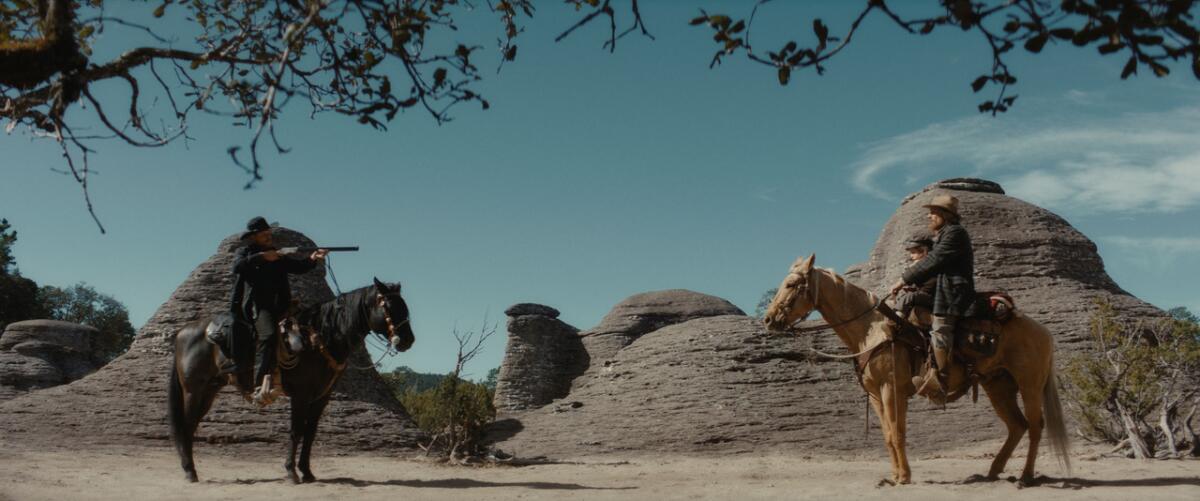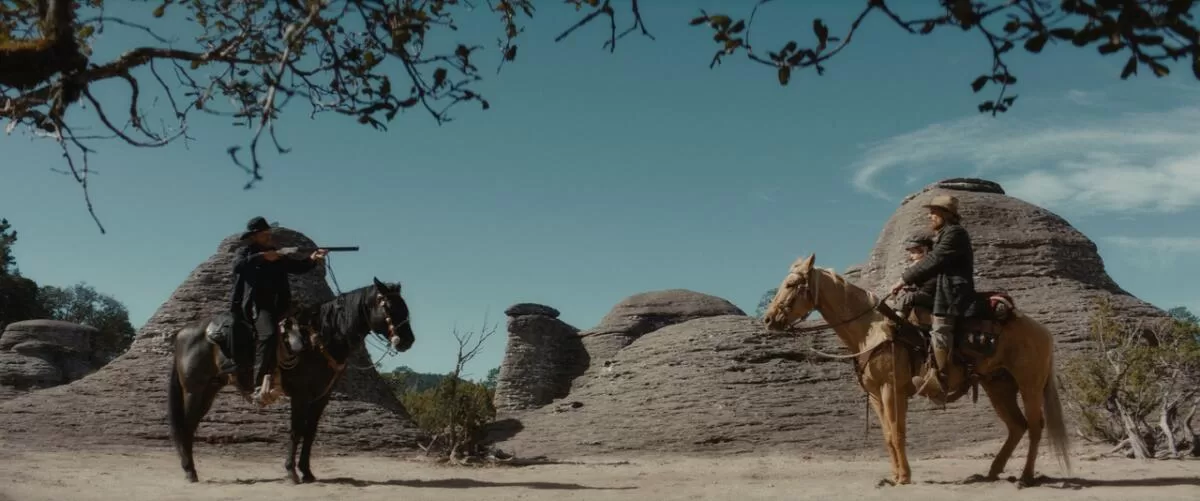The gently blossoming match of a strong-willed woman of French-Canadian origin with a taciturn, self-reliant Danish immigrant is this film’s beating heart, from their initial spark in San Francisco to their settling in a ramshackle cabin on the outskirts of a one-saloon Nevada town called Elk Flats. This being a western, though, the specter of death and violence is never far away. Mortensen even starts with a pair of grim scenes that in other films might be endings — one a private loss, the other a public shootout. They trigger the film’s temporally loose narrative tapestry, in which flashbacks (which have their own flashbacks) begin to feel as if the playing out of the past is this tale’s true present, the way it might feel to someone in mourning.
For big-city flower seller Vivienne (Krieps), who can take care of herself and relishes childhood memories of idolizing Joan of Arc, the attraction to rugged, kind-eyed carpenter Olsen (Mortensen) is in the promise of adventure, passion and mutual respect for each other’s rock-ribbed independence. We sense early on, from Mortensen’s delicate handling of their courtship, that this isn’t some musty rehash of the trope where she civilizes him and he domesticates her. Rather, watching them interact as they whip their home into shape, they come off as adults, not so much love-struck as love-sturdy. Clear-eyed about themselves and the realities of their adopted nation, they’re willing to forge something together, confident they’re there for each other in a time of growing turbulence.
The Civil War is nigh, for one thing, but part of that unease is local, too. There’s an air of menace in town, fostered by a corrupt alliance between the mayor and a wealthy businessman — played, respectively, by horse-opera dependables Danny Huston and Garret Dillahunt — plus the gleefully sadistic presence of the latter’s entitled, insolent son (a forbidding Solly McLeod). We fully expect that danger to touch the central couple’s lives when Olsen, a military veteran, feels compelled to fight for the Union, leaving behind Vivienne, who begins working at the saloon’s bar. Before long, her fortitude is put to the severest of tests, and eventually, so is Olsen’s, upon his return years later.

(Marcel Zyskind)
There’s little the radiant Krieps (“Phantom Thread”) can’t do with a headstrong, ahead-of-her-time character, and in period stories especially, she preserves a spiky modern sensibility — both the rose and its thorns. The durably authentic Mortensen, meanwhile, understands that his mostly reactive role is closer to a featured part than a lead. At times in his scenes with Krieps, you’d swear his smitten expressions are as much about a director’s gratitude than a lonesome tradesman’s good fortune. (Mortensen, for whom this project is clearly personal, also wrote the forlorn cello-and-violin score, which mostly satisfies, if at times calling to mind a Ken Burns history lesson awaiting old-timey narration.)
“The Dead Don’t Hurt” is soothingly picturesque, meeting the requirement that any western worth its boots needs an evocative, immersive look to take in a campfire’s glow or the scorching glare of day. That task is handled with aplomb by cinematographer Marcel Zyskind, blessed with vista-rich locations in Durango, Mexico, and Canada. But it’s also helped immeasurably by actors whose faces, in any given light, photograph like their own rich landscapes, of happiness, strength, care and pain.
‘The Dead Don’t Hurt’
Rating: R, for violence, some sexuality and language
Running time: 2 hours, 9 minutes
Playing: Now in wide release
